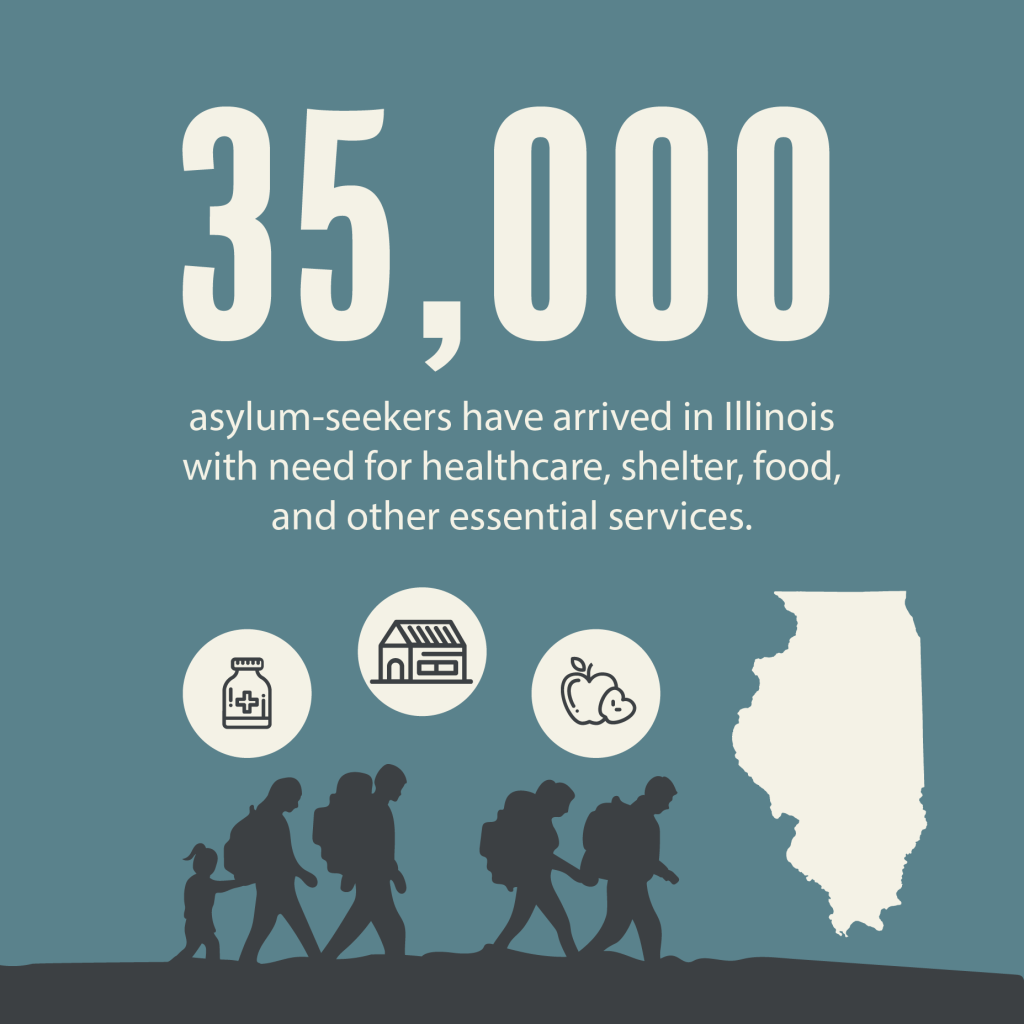CRIMINAL LAW
Cashless Bail Fails: Six months of diminished public safety. Six months after the full implementation of the cashless bail, and other provisions, of the Illinois SAFE-T Act, Illinois residents are finding themselves anything but safe.
House Republicans warned against the passage of the SAFE-T Act because of problematic provisions in the law that make the work of law enforcement officials harder to do, and because the law will make our communities less safe.
We opposed ending cash bail. We opposed anonymous complaints against police officers. We opposed the very nature of the way the bill was passed. Four attempts at trailer legislation still haven’t fixed the issues within the SAFE-T Act.
Now that the end of cash bail is in place, we have seen numerous reports from throughout the state of individuals committing crimes, being let out of jail shortly after, and then offending again while they are out awaiting their court date.
It doesn’t have to be this way. Illinoisans deserve to know that when a perpetrator commits a crime, they are going to be held accountable, and most certainly that they won’t be back out on the streets in just a matter of a few hours.
So says House Republican Floor Leader and Republican ranking member on the House Judiciary Criminal Law and House Restorative Justice Committees Patrick Windhorst, who previously served as Massac County State’s Attorney for fourteen years.
“There is a concerning trend we see here in Illinois where criminals are treated better than law-abiding citizens and as leaders, we cannot continue to jeopardize the safety of our communities,” said State Representative John Cabello, one of only two law enforcement officers currently serving in an active role in a police department serving in the Illinois House.
“The SAFE-T Act and provisions within the law has created a society where people just don’t feel safe,” said Rep. Rosenthal. ” Our law enforcement officers don’t feel supported and criminals walk right out of jail after committing repeated crimes and show no respect for our laws.”
The headlines back up the concerns expressed by House Republican legislators about the SAFE-T Act. While hundreds of headlines have peppered Illinois news sources since the SAFE-T Act was fully implemented six months ago, below are some of the important stories you may have missed.
Illinois SAFE-T Act diminishes public safety:
- Illinois woman charged with attacking Chicago police officers released on no cash bail thanks to new state law– Fox News- Sept. 19, 2023
- Man, accused of stealing $68K worth of merchandise in smash-and-grab robbery, released under new Illinois SAFE-T Act– WTVO-TV- Rockford- Sep. 22, 2023
- Charged with striking officers, Mt. Vernon woman released under SafeT Act– WMIX- October 2, 2023
- Arrested Illinois officer avoids jail time through new law– The Southern- October 13, 2023
- Madison County judge orders man accused of sexual assault of teenage girl to be released– Belleville News Democrat- December 1, 2023
- Chicago man arrested 3 times since October, flips off mugshot camera twice– CWB Chicago- December 11, 2023
- ‘If I could detain you … I would’: Lake County judge forced under SAFE-T Act to release man accused of pulling loaded gun on woman– Lake & McHenry County Scanner- January 1, 2024
- Granite City man awaiting trial in rape case is charged again with sexual assault– Belleville News Democrat- March 10, 2024
- Rockford murder suspect released before trial under new Illinois bail law– WTVO-TV- Rockford- March 27, 2024

Learn more about the House Republican Public Safety Working Group’s solutions to improving public safety for Illinois residents
After sheriff’s deputy killed, accused perpetrator released under umbrella of SAFE-T Act. The controversial SAFE-T Act, enacted by Democrats during the lame-duck session of the Illinois General Assembly in January 2021, abolished cash bail and established a presumption of release for defendants. Because Illinois criminal courts are backed up, this often means that persons accused of serious criminal offenses are allowed to spend months or more out on the street as their trial date slowly approaches.
Many law enforcement officers and elected officials, including sheriffs and State’s attorneys, have expressed their opposition to the new law. Illinois House Republicans continue to oppose the law, with its hostile attitude towards law enforcement and the safety of the community.
Tragically, on March 29, DeKalb County Sheriff’s Deputy Christine Musil was killed in a collision when her parked vehicle was struck by a vehicle driven by Nathan P. Sweeney. Sweeney was tested after the incident and was determined to have been driving under the influence of drugs. He was charged with reckless homicide, a Class 2 felony, and three counts of aggravated driving under the influence of drugs, also a Class 2 felony. These Class 2 felonies carry a potential prison term of 3 to 14 years.
At a pretrial hearing this week, the State’s Attorney’s Office requested that Sweeney be held in detention pending trial based on these charges, with the contention that the driver’s pretrial release would pose a real threat to the safety of other person or persons and the community. The judge, however, released Sweeney from custody. The judge explicitly cited the SAFE-T Act in issuing orders for Sweeney’s pretrial release. The judge issued the release order on Monday, April 8.
ENERGY
Illinois public sector begins to take steps to strongly discourage, or even ban, future use of natural gas. Since the 1950s natural gas, a clean-burning fuel, has been a preferred source of energy for household heating. Suppliers have constructed a multi-billion-dollar network of trunk pipelines and local distribution tubes to channel flammable natural gas to Illinois households. In addition, natural gas is used by the great majority of Illinois commercial and industrial buildings, as well as being burned to generate electricity. Almost all of the natural gas burned in Illinois comes from fields located in the United States of America and its territorial waters.
Now, however, an international grouping of advocates is starting to push jurisdictions within the so-called developed world to wind down, and eventually abandon, the use of fossil-fuel natural gas. Discussions of this point have reached the Illinois Commerce Commission (ICC), the State panel that regulates natural gas usage and pricing in Illinois. One complication is that the current Illinois system of pipelines and distribution tubes is financially maintained by natural gas users and ratepayers. This infrastructure, because it contains a flammable substance, must be maintained throughout its entire working life. If Illinois, or any of its local governments such as the city of Chicago, were to take steps to discourage or ban future natural gas hookups, then the cost of maintaining the existing infrastructure of natural gas in Illinois for continued use by grandfathered-in Illinoisans would be imposed on a dwindling number of customers. The price of natural gas would shoot up, adding to the burdens placed on Illinois families and households.
IMMIGRATION
Growing Costs of Non-Citizens on Illinois Taxpayers. The cost of providing services to undocumented immigrants and asylum seekers is costing Illinois taxpayers an estimated $2.84 billion since July 1, 2022. This does not include education costs or other various state and local services.
Estimated Illinois taxpayer spending on non-citizens from Fiscal Year 2023 to Fiscal Year 2025 include $820 million in support services, which is broken down to $478 million for asylum seeker assistance, $160 million for new additional state investments, and $182 million for emergency funding requests.
While estimated healthcare costs for undocumented immigrants and asylum seekers over the same two-year period are pinned at just over $2 billion, an astounding figure. This includes $619 million in the Fiscal Year 2023 state budget, $773 million in the Fiscal Year 2024 state budget, and $629 million in the proposed Fiscal Year 2025 state budget.

Republican lawmakers have been adamant in questioning Illinois Democrats priorities because of their funding of the meteoric rise in healthcare costs for undocumented immigrants. While Illinois residents and hard-working parents have to pay insurance premiums and co-pays, undocumented immigrants and asylum seekers have largely not been subjected to paying for any part of their healthcare costs, all at the expense of taxpayers.
The billions of taxpayer dollars being spent on undocumented immigrants directly takes away funds that could be used to support essential programs for all Illinois citizens, including seniors and those most economically and socially vulnerable. Illinois is one of only five states in the nation that provide Medicare-like benefits, at taxpayer cost, to undocumented immigrants.
House Republican lawmakers in Illinois have, meanwhile, sponsored legislation to put a much-needed moratorium on healthcare benefits to non-citizens (House Resolution 220) as well as legislation to repeal the Illinois Trust Act (House Bill 4187), which defined Illinois as a Sanctuary State for immigrants and migrants.
Bills Out of Committee This Week Strongly Favor Democrats
https://reprosenthal.com/2024/04/05/bills-out-of-committee-this-week-strongly-favor-democrats
